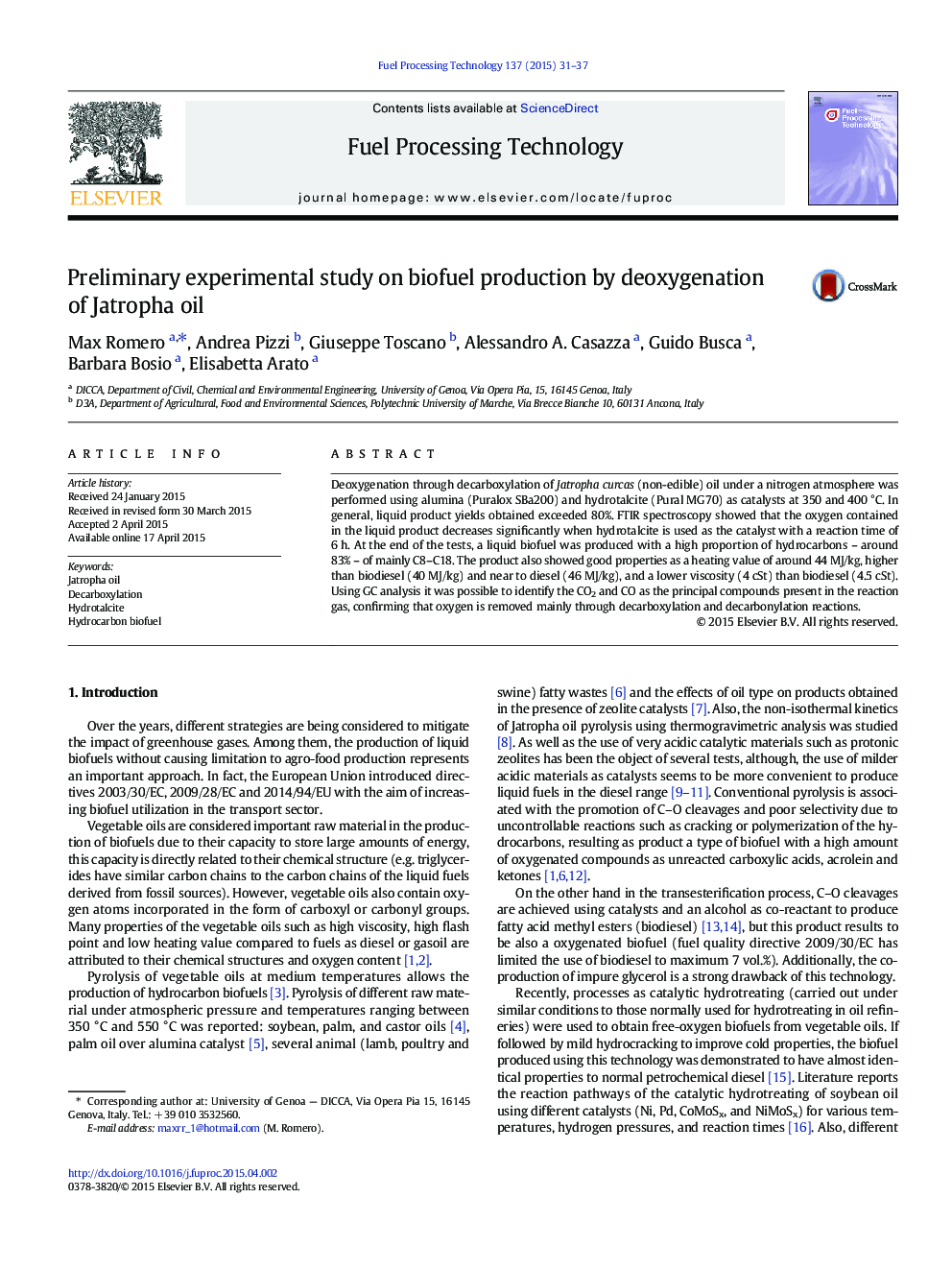| Article ID | Journal | Published Year | Pages | File Type |
|---|---|---|---|---|
| 209458 | Fuel Processing Technology | 2015 | 7 Pages |
•Deoxigenation of Jatropha oil through decarboxylation process•Testing of hydrotalcite and alumina as catalysts in a free hydrogen atmosphere•Production of a biofuel composed mostly of hydrocarbons.
Deoxygenation through decarboxylation of Jatropha curcas (non-edible) oil under a nitrogen atmosphere was performed using alumina (Puralox SBa200) and hydrotalcite (Pural MG70) as catalysts at 350 and 400 °C. In general, liquid product yields obtained exceeded 80%. FTIR spectroscopy showed that the oxygen contained in the liquid product decreases significantly when hydrotalcite is used as the catalyst with a reaction time of 6 h. At the end of the tests, a liquid biofuel was produced with a high proportion of hydrocarbons – around 83% – of mainly C8–C18. The product also showed good properties as a heating value of around 44 MJ/kg, higher than biodiesel (40 MJ/kg) and near to diesel (46 MJ/kg), and a lower viscosity (4 cSt) than biodiesel (4.5 cSt). Using GC analysis it was possible to identify the CO2 and CO as the principal compounds present in the reaction gas, confirming that oxygen is removed mainly through decarboxylation and decarbonylation reactions.
